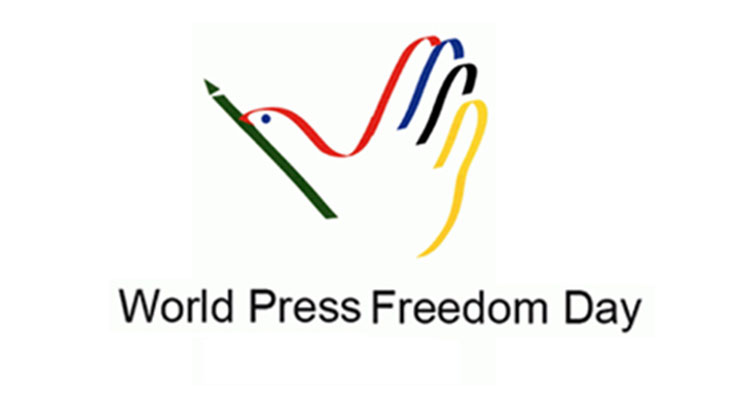Press freedom presupposes the right of individuals, journalists and media organisations to publish and disseminate information, thoughts and opinions without restraint or censorship. In Nigeria, this is guaranteed under Section 39 of the Constitution of the Federal Republic of Nigeria, which states that: “Every person shall be entitled to freedom of expression, including freedom to hold opinions and to receive and impart ideas and information without interference.”
In every democracy, both freedom of expression and press freedom are enshrined in the constitution. In Nigeria, apart from Section 39 of the constitution, Section 22 empowers citizens to own media platforms which can be used to hold the government accountable to the people. It states that: “The press, radio, television and other agencies of the mass media shall at all times be free to uphold the fundamental objectives (of the constitution) and uphold the responsibility and accountability of the government to the people.” On the basis of this law, there are multiplicity of media platforms in the country, ranging from print, radio, television, digital to social media. Other acts of the National Assembly like the Freedom of Information Act (2011) and Whistleblower policy support the freedom.
Any democratic government that gags citizens and the press cannot receive feedback necessary for improvement in policies and strategies. It is based on the foregoing that May 3, every year, since 1994, is set aside as World Press Freedom Day. It is a day to appreciate the work and contributions of journalists to the development of society and a day to defend the media from attacks.
However, the situation in Nigeria is akin to giving the press freedom with one hand and taking it back with the other. There are several acts that contain sections that restrict the freedom of the press. The National Broadcasting Commission (NBC) Act has been used to censor and impose monetary fines on several radio and television stations. Journalists are still exposed to charges for sedition under Section 51 of the Criminal Code Act which makes it an offence to, inter-alia, utter seditious words, print, publish, sell, offer for sale, distribute or reproduce or import any seditious publication, and prescribes imprisonment of two years. The dictionary definition of sedition means “conduct or speech inciting people to rebel against the authority of a state or monarch.” Without repealing this law, media houses that engage in critical reporting stand the danger of being accused of sedition.
Also, though the Freedom of Information (FoI) Act is expected to override the Official Secret Act, but government officials still administer Oath of Secrecy to civil servants. The oath expressly forbids them from releasing information guaranteed under the FoI Act to the media.
Perhaps, the use of the Cybercrime Prevention Act (2015) to harass and detain journalists, especially by state governments, is most disturbing. The crime of cyberstalking contained in Section 24 of the Cybercrime Act has been used to persecute investigative journalists who expose wrongdoings by governors and heads of government departments. Though an amended version of the section refers to the use of computer to share messages that are pornographic or knowingly false “for the purpose of causing a breakdown of law and order, posing a threat to life or causing such messages to be sent,” as many as 25 Nigerian journalists have been harassed and detained for their critical reporting which were tagged “cyberstalking”. Cyberstalking is “the repeated use of electronic communication to harass or frighten someone, for example, by sending threatening emails.” It must not be extended to the kind of journalism that holds public officials accountable; a practice that is guaranteed in the constitution.
On many occasions when journalists who were brutalised had their equipment damaged or suffered losses as a result of the abuse of their rights take their cases to the court of law, but the process of dispensing justice has been very slow. In cases where judgments were delivered, the punishment or fines imposed on perpetrators sounded like a slap on the wrist. They did not commensurate with the injuries such journalists suffered. The judiciary, therefore, has a crucial role to play to encourage good journalism, by ensuring that laws are not twisted to punish journalists who contribute their quota to the development of Nigeria.
Also, they must discourage the abuse of journalists by meting adequate punishment to those who take the law into their hands by assaulting men of the pen profession.
As we mark the World Press Freedom Day, we call on both the federal and state governments to bring an end to physical assault on journalists usually perpetrated on their behalf by security operatives and non-state actors like thugs. Journalists are partners in progress in the country’s democratic practice; not enemies. We call on security agencies like the police, military, Department of State Services (DSS) and Nigeria Security and Civil Defence Corps (NSCDC) to desist from the practice of brutalising journalists under the guise of protecting important personalities. Journalists have a constitutional role to play in the Nigerian polity. They must be allowed the freedom to play that role.

 Join Daily Trust WhatsApp Community For Quick Access To News and Happenings Around You.
Join Daily Trust WhatsApp Community For Quick Access To News and Happenings Around You.


